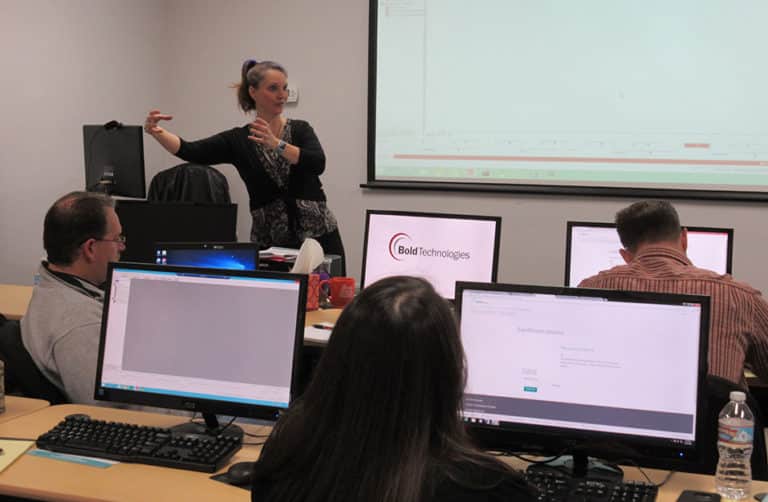(This is the sixth in a monthly series about Corporate Health, where we examine different methods and ideas for improving efficiency, your company culture, and employee morale.)
Employee training and development should be a critical element of your company culture. After all, companies that invest well in their training and development reap the benefits with increased profits, better employee motivation, less turnover, and more talent to promote from within.
There is a difference between training and development. Training is specific; it’s designed to give employees the knowledge required to perform or improve skills needed for their current job. Development is much broader term, referring to types of formal or advanced training or education which furthers an employee’s professional knowledge in their field while promoting their overall growth and ability.
Training:
Training should happen from day one. A strong new-hire training program can make the difference between an employee who flounders with understanding company practices and policies, and one who is confident and prepared to begin their new position.
Side-by-side training with another employee is an excellent strategy. It gives the new hire an opportunity to witness workflow patterns and “learn by doing,” it also establishes camaraderie and helps the new employee become part of the team faster than if they were training apart from their co-workers.
No matter how good your initial training, the fact is, employees cannot absorb all of it. Even if they could, companies change as software is updated, more effective procedures are documented, and industry standards evolve. Giving employees the opportunity to review and build on their skills on a regular basis helps eliminate unseen mistakes or poor habits and increases their confidence.
Security businesses tend to embrace training, especially in an industry where employee competence can make a difference in life or death situations. In a recent survey of Bold customers, over 85 percent of respondents said their company offers employee training and development. Among the offerings: Sharepoint training programs, on-line courses such as Bold Genius, refresher classes, and hands-on training such as Bold’s CSM course or the Bold Users Conference.
Development:
Development is sometimes classified by companies as an unnecessary expense because it does not always address a specific need for the employee’s existing job description. But it is still a valuable investment. An employee who learns professional skills applicable to their industry as a whole is one who will be a strong contender for future promotions and growth within the company. In addition, professional development shows employees the company is committing to their future by investing in them. Bold’s survey revealed many companies offer professional development by sending their employees to conferences and events where they can learn more about the industry. Some even offer tuition assistance for higher education.
Personal development can be just as valuable a benefit to employees as professional. Dory Retherford, the Central Station Manager at Per Mar, described a program her company offers each month to help employees with various personal topics. “Per Mar has started monthly webinars on Personal Growth. Yesterday they held one on “Budgeting Benefits and Downfalls.” March is Budget Issues, April is Saving and Goal Setting, May is Investing and June is Health and Life Insurance, etc.” These webinars provide employees with knowledge they may be seeking, in a more private setting than a company meeting.
Does your company invest in employee training and development?
